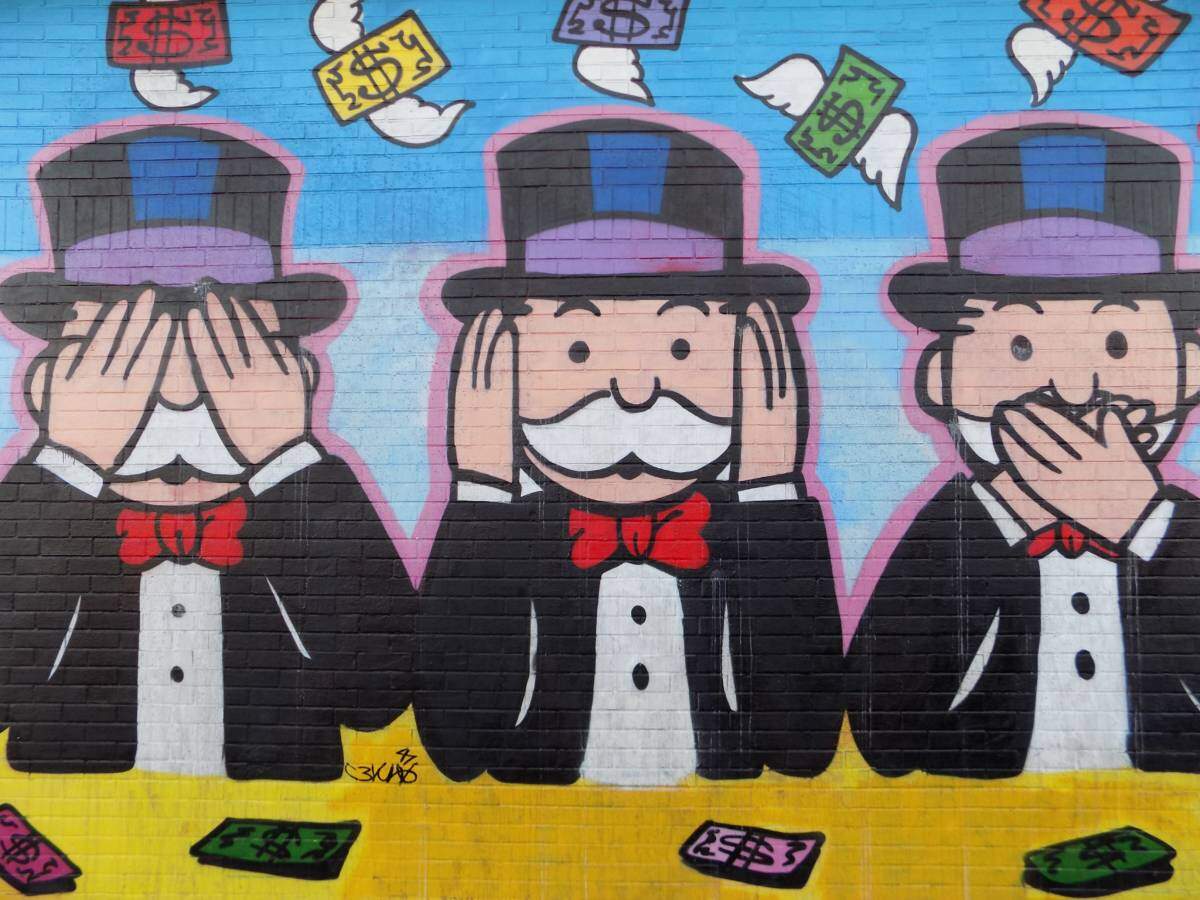It’s rare that anything is absolutely 100% clear when it comes to people and the way they divide themselves. And it’s even worse when the words we use are unclear themselves.
Specifically, the words racism and prejudice.1
Prejudice is generally an individual’s (negative) opinion about another. In this context it’s particularly due to some kind of external appearance or signifier that doesn’t have anything to do with the person’s worth. Anybody – and really everybody – has prejudices. This is almost always what we’re talking about when someone says “People in [GROUP] can be racist too”; that lack of clarity makes talking about this so much harder.2
Racism is signified by power. This power can be physical, emotional, or social – it doesn’t matter. It is because of the power aspect that you will hear phrases like “black people in America can’t be racist”. Prejudiced, sure.
Because it is about power and the structures of power, racism does not require prejudice. The Monopoly example from Privilege, Power, and Difference is an example of how the effects of an action can be separated from personal feelings.
When you play Monopoly, the objective is to screw over the other players. It has nothing to do with who they are, what race or ethnicity they are, or how you feel about them. It’s simply how the game is played.
A classic real life example is the self-fulfilling prophecy of profiling. If you have equal rates of drug usage among the entire population, but search more people of color for drugs, you’ll find more people of color being arrested for possession. That then turns into an after-the-fact justification for the profiling, but does not mean that the people actually doing the profiling are prejudiced against people of color. They may think they’re just following the data, not realizing that the system has skewed the data in a racist way. The way we fund public schooling in the United States likewise perpetuates a racist system by making it harder for those who are not already well-off to get a quality education. Or prosecutors giving better plea deals to white defendants.
Let’s go back to the Monopoly example.
Several circuits of the board have been played, and the original players have left. Four other people have picked up the game where it stood. One player finds out he has far less opportunity than the others. Less money in the bank, fewer properties.
This inequality is not the fault of any of the players currently sitting at the table.
But it isn’t equal. Not at all.
If we were to try to make it equal at this point – if we were to make it a fair game based on skill of the players – something drastic would have to be done. Maybe we would take some of the money from the other three players. Maybe we would give that fourth player an extra turn, or give the fourth player extra money every time they passed “go”.
Because giving that “advantage” to the fourth player would be the only way to make the game fair for the people playing now.
It might not feel fair at first to the other three players. It might feel like they were being discriminated against (which is what we see in real life)… until they recognized that the game they inherited wasn’t fair to begin with.
This is where the example of Monopoly breaks down. Because Monopoly is an adversarial game. Monopoly is not a game about community or cooperation or citizenship. It is – and was designed to be – a game showcasing the worst aspects of capitalism. It was a game originally designed as a warning about the corroding influence of pitting people against each other in the real world.
In the real world, in our country, we have ideals and standards about cooperation. About helping each other to succeed, and having others help us when we need it.
We have ideals about trying to be fair, and giving everyone an equal chance.
Following those ideals might break the game of Monopoly. We might have to completely change the way the game is played.
But following those ideals, helping others, reducing inequality – even if, and especially if it’s not our fault – strengthens our country.
And that’s a far better goal than collecting cheap plastic hotels.
1 Please don’t quote the dictionary at me. Dictionaries do not prescribe definitions, they describe them.
2 You can substitute sexism or other forms of bigotry for racism; the argument holds.

